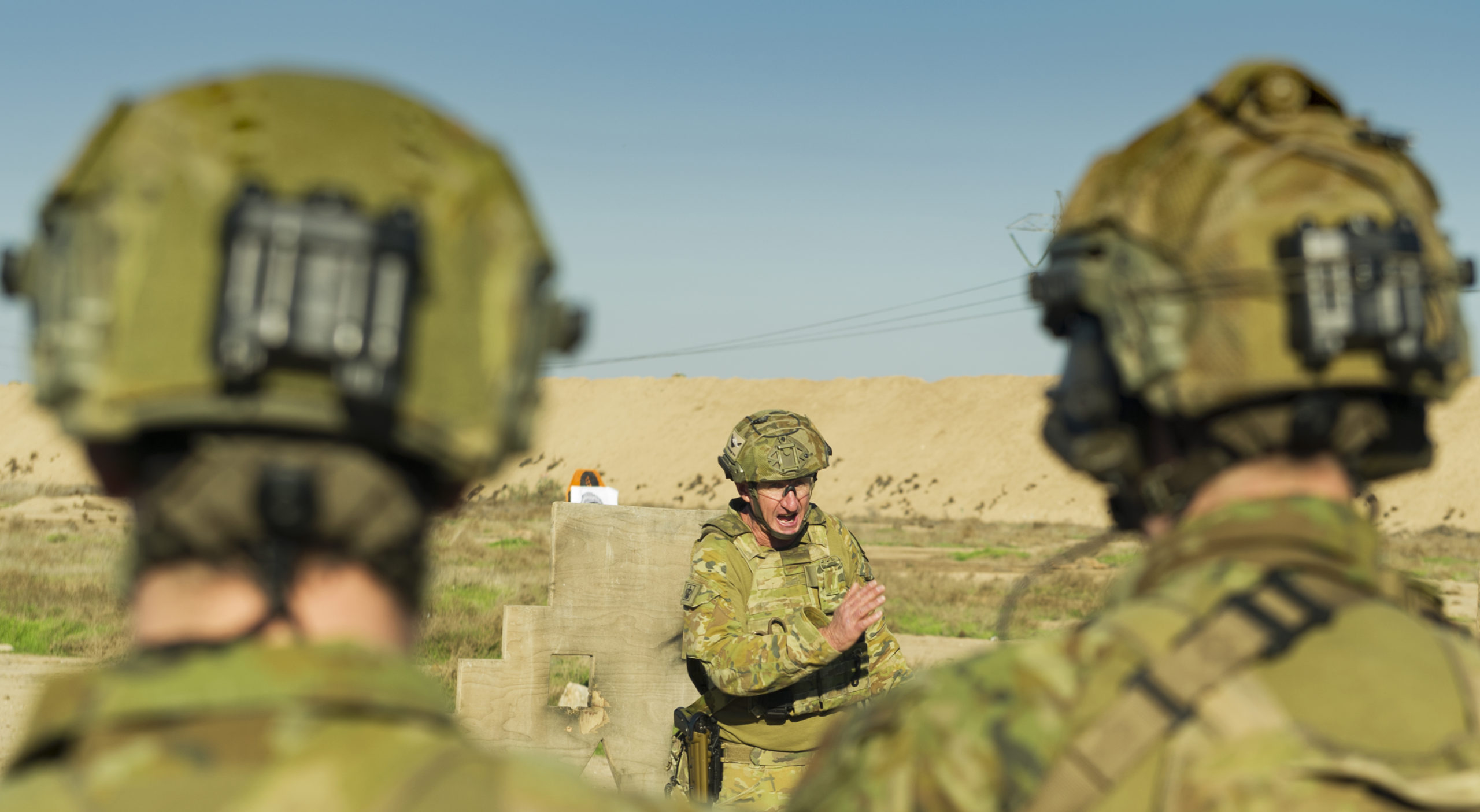The divide between officers and non-commissioned officers (NCO) is sometimes described as the difference between ‘book learning’ and practical experience. While many of the Australian Army’s enlisted are incredibly well-educated, I still hear some refer to ‘book learning‘ with distaste because I think they have not honed their ability to learn from theory.
I grant you that people know what words the squiggles on a page correspond to, but that skill is to reading like hearing is to listening. To read doctrine or a book, and then understand and apply the content is not an easy skill to master.
However, like practical training, learning from theory is a skill that can be developed. It starts by recognising that understanding the words on a page and working through them are two different levels of learning. The difference is that working through a text involves breaking down its logic and internalising it. You figure out the crucial premise of the arguments, stress test the reasoning and try finding reasons why and circumstances when it will fail. You then try and figure out what the author would say in response to your challenge. It is a slow process, but eventually you come to a nuanced understanding.
The ancient Greeks recognised a spectrum of knowledge between episteme and techne; knowing facts and knowing how to do something. For example, knowing the capital city of Spain is an episteme; whereas knowing how to ride a bike is techne because you can know the theory and still be unable to do it in practice. Following a recipe to cook a meal is somewhere in between.
To become a technically skilled practitioner through only theoretical learning would be extremely difficult and an army could never build a functioning force that way. However, I think learning from theory and reading widely can get you some way towards techne with many military tasks. ‘Book learning’ should not be discarded just because it cannot get you all the way. If you can get halfway by reading, then you’re halfway to being proficient at the skillset.
Not only is that more efficient, but mistakes can have significant consequences in the profession of arms so it is irresponsible to advocate entirely against theory-based learning of practical skills.
Despite that, in my experience, the average soldier or NCO much prefers the ‘soldier’s five’ method of training over more theoretical ‘classroom’ training. Learning from theory is readily dismissed by some.
Consider the example of cooking mentioned above: you can quickly read a recipe and not be able to follow it. You can follow the recipe step by step, even memorise it perhaps, and you would only be able to cook that specific dish in that specific way. I think this is about the level that many soldiers generally reach when reading doctrine publications.
The approach I am advocating involves breaking down the ingredients and asking why they work together. What could be added to improve it, or removed without loss? Why cook it at that temperature for that time? What would happen if you cooked it hotter for less, or cooler for longer? By working through the recipe this way, you become a better cook, able to apply the principles in the next dish. Junior NCOs have a key role to play in helping their teams achieve this deeper appreciation.
Working through a publication gives a broader perspective which experience alone cannot bring you. Experience is necessarily particular; the lessons you learn in one context are not always applicable in another. With a strong theoretical understanding, experience fits into a broader framework and you have a better view of what applies when and why.
I do note that Army doctrine and publications combine the experience of their many authors and therefore, while theoretical, are grounded in experience. Indeed, in LWP-G 3-9-6 Operations in Urban Environments (available on the DPN), several sections start by highlighting that people died failing to heed the lesson, making the point all the more impactful. This is only one example of why this doctrine is particularly apt at delivering lessons at the enlisted level to help them overcome their suspicion of ‘book learning’.
Developing your ability to learn from theory is a training multiplier, and regardless of rank or trade, you owe it to your commanders, peers, and subordinates to develop that skill sooner rather than later.
About the Author: Lance Corporal Lobi Meneses is a Combat Engineer in the 11th Engineer Regiment.
Cover Image Credit: CAPT Roger Brennan, Defence Image Gallery

